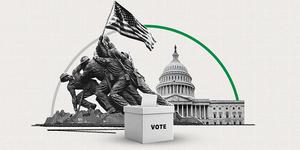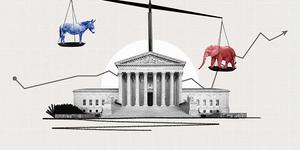Social and Policy Issues
Explore Gallup's research.

Cost is a barrier to veterinary care in Canada, affecting pets, families and care teams as veterinarians balance affordability and care standards.

Nine percent of U.S. adults identify as lesbian, gay, bisexual or transgender, more than double the percentage a decade ago.

Veterinarians say the cost of treatment frequently limits recommended care and has clinical and emotional impacts for pets, pet families and care teams.

Four in 10 Americans say they are overweight, and 52% want to lose weight. Yet only half as many are trying, with women expressing more desire.

Most Americans still celebrate Christmas, but fewer observe it religiously, while secular customs remain highly popular.

Concerns about and dissatisfaction with healthcare costs in the U.S. underscore Americans' belief that the nation's healthcare system is highly flawed.

Americans' approval of the Affordable Care Act has risen to a new high, fueled by increased support among political independents.

In rural America, high levels of community support and connection are linked to higher levels of local involvement and leadership.

Americans generally view the U.S. prison system as secure, but say it is ineffective at keeping inmates safe or rehabilitating them.

Two years after expressing record pessimism about the U.S. illegal drug problem, Americans are the most optimistic they have been in a quarter century.

Fewer Americans see national or local crime rising or view these as serious problems, but concerns about child safety and financial fraud remain.

Americans continue to express a desire for a third party but have reservations about voting for third-party candidates.

Americans expect AI-based attacks on the U.S., but support for developing AI-enabled weapons for conflicts is more limited and conditional.

A majority of Americans, 55%, say they are more likely to vote for candidates for elected office who have past military experience.

Forty-three percent of Americans describe the U.S. Supreme Court as being "too conservative," the highest in Gallup's trend.

Americans have become more liberal on many moral and values issues over the past quarter century, but with some signs of a leveling off in recent years.

Even as the U.S. birth rate has fallen to a new low of 1.6 births per woman, Americans still say the ideal family includes an average of 2.7 children.

Whether Americans see the American Dream as more about stability or opportunity is shaped by income, education and lived experiences.

Nearly two-thirds of Americans say racism against Black people is widespread, even as slightly more than that say they've seen civil rights gains.

Less than half of Americans are satisfied with the way immigrants and Black, Hispanic, Jewish and Arab people are treated in the U.S.